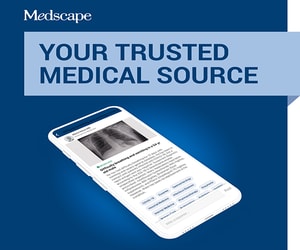October 1, 2007 — The European Commission (EC) has approved 30- and 45-mg strengths of oseltamivir phosphate capsules for influenza prophylaxis in children aged 1 year and older; the Netherlands Medicines Evaluation Board has approved quetiapine fumarate extended-release tablets for the once-daily treatment of schizophrenia in adults; and the EC has approved a new formulation of interferon beta-1a injection designed to improve injection tolerability while targeting an improved immunogenic profile.
Low-Dose Oseltamivir Phosphate Capsules ( Tamiflu) for Pediatric Use in EU
On September 20, the European Commission approved 30- and 45-mg strengths of oseltamivir phosphate capsules (Tamiflu, Hoffmann-La Roche Ltd) for the treatment and prevention of influenza types A and B in patients aged 1 year and older.
Compared with previously approved 75-mg capsules, the new strengths offer improved convenience in pediatric dosing; moreover, the capsules have a longer shelf life than the liquid suspension formulation (5 vs 2 years) and offer an improved option for stockpiling.
"It is estimated that children are three times more likely to get sick with the flu — on average, one in 10 adults is affected by influenza annually, compared with one in three children," the company notes in a news release, adding that children are more severely affected by seasonal influenza than adults.
Clinical trials have shown oseltamivir to deliver a 38% reduction in symptom severity and a 67% reduction in secondary complications (eg, bronchitis, pneumonia, and sinusitis) and to offer an 89% efficacy rate in preventing influenza when administered within 48 hours of exposure.
The recommended dose of oseltamivir for influenza prophylaxis (once daily) and treatment (twice daily) for a period of 10 days in pediatric patients is based on weight (≤15 kg [33 lbs], 30 mg; >15 – 23 kg [51 lbs], 45 mg; >23 – 40 kg [88 lbs], 60 mg; and >40 kg [88 lbs], 75 mg).
Gastrointestinal tract events, particularly vomiting, were the most frequently reported adverse events in children receiving oseltamivir. Abdominal pain, epistaxis, ear disorder, and conjunctivitis were also observed and generally occurred once and resolved despite continued dosing.
Oseltamivir 30- and 45-mg strengths previously were approved by the US Food and Drug Administration (FDA) on July 2, 2007. Other dose strengths approved by the FDA and EC include 75-mg capsule and 12-mg/mL oral suspension formulations.
Once-Daily Quetiapine Fumarate Extended-Release Tablets ( Seroquel XR) for Schizophrenia in the Netherlands
On August 29, the Netherlands Medicines Evaluation Board approved quetiapine fumarate 200-, 300-, and 400-mg extended-release tablets (Seroquel XR, AstraZeneca) for the once-daily treatment of schizophrenia in adults. Completion of the Mutual Recognition Procedure is anticipated to secure similar approvals across Europe.
"With Seroquel XR, patients can achieve a dose within the recommended range as early as the second day of treatment," the company says in a news release, noting that the indication also includes relapse prevention in the long-term treatment of schizophrenia.
The approval was based on data from clinical trials demonstrating the product's safety and efficacy in acute treatment and relapse prevention and its noninferiority to the original immediate-release formulation (Seroquel, AstraZeneca).
Treatment with the extended-release formulation should begin at a dose of 300 mg taken once daily, preferably in the evening; tablets should be swallowed whole. Dose increases can be made at intervals as short as 1 day and in increments of up to 300 mg/day. The safety of doses greater than 800 mg/day has not been studied in clinical trials.
A slower rate of dose titration and target dose should be considered for elderly patients and for those who are debilitated or prone to hypotensive reactions. Patients requiring less than 200 mg during initial titrations should receive the immediate-release formulation.
Elderly patients and those with hepatic impairment should be started on the immediate-release formulation at a dose of 25 mg/day, increased daily in increments of 25 to 50 mg/day to an effective dose. When this target has been reached, switching to the extended-release tablets is permissible at the equivalent total daily dose.
Quetiapine extended-release tablets were approved by the US Food and Drug Administration on May 17, 2007.
New Formulation of Interferon Beta-1a Injection (Rebif) for Relapsing Multiple Sclerosis in EU
On August 30, the European Commission approved a new formulation of interferon beta-1a injection (Rebif, Merck Serono [a division of Merck KGaA]) for the treatment of relapsing multiple sclerosis (MS). The approval applies to all 27 countries of the European Union (EU) as well as Iceland, Liechtenstein, and Norway.
According to company information, the new formulation is made without human- or animal-derived serum albumin and is designed to reduce injection-site reactions and antibody production compared with the current product. Dosage strengths and forms will remain consistent (8.8, 22, and 44 Вµg, as a solution for injection in prefilled syringes) and are expected to be available in September 2007.
"This new formulation will represent an improvement in the therapy of MS patients being treated with Rebif," says Per Soelberg Soerensen, of the Danish Multiple Sclerosis Research Centre at Copenhagen University Hospital, in a company news release.
The new formulation for interferon beta-1a is currently under consideration for approval by the US Food and Drug Administration.
Medscape Medical News В© 2007 Medscape
Cite this: Yael Waknine . International Approvals: Tamiflu, Seroquel XR, Rebif - Medscape - Oct 01, 2007.


Comments